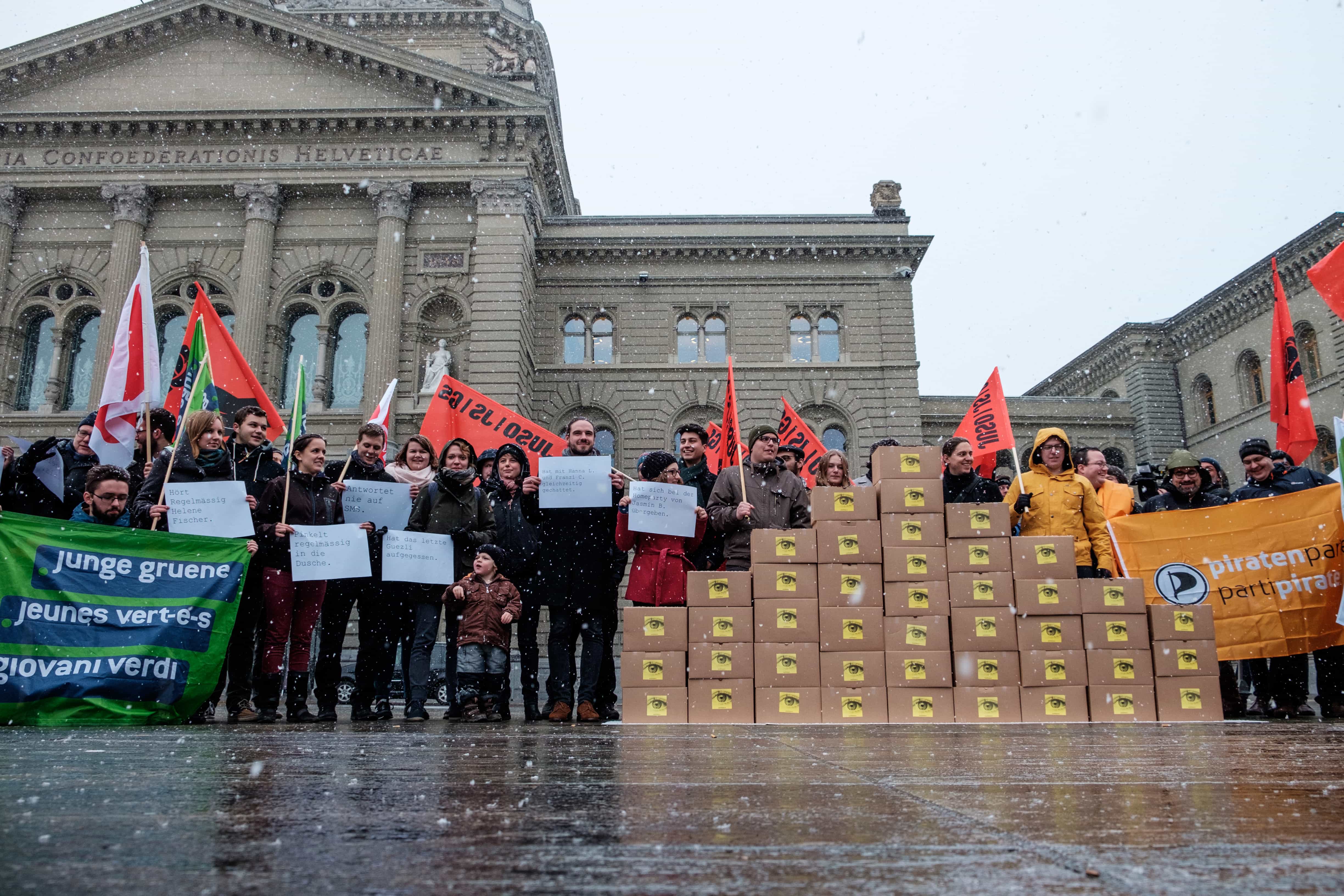(RSF/IFEX) – The following is a 14 February 2007 RSF press release: EUROPEAN COURT’S RULING IN STOLL CASE WILL BE CRUCIAL FOR PRESS FREEDOM IN SWITZERLAND The verdict which the European Court of Human Rights issues in the case of Martin Stoll v. the Swiss government could result in a reform of the criminal code […]
(RSF/IFEX) – The following is a 14 February 2007 RSF press release:
EUROPEAN COURT’S RULING IN STOLL CASE WILL BE CRUCIAL FOR PRESS FREEDOM IN SWITZERLAND
The verdict which the European Court of Human Rights issues in the case of Martin Stoll v. the Swiss government could result in a reform of the criminal code and significant changes in the way journalists work in Switzerland.
The verdict which the Grand Chamber of the European Court of Human Rights (ECHR) issues in the case of “SonntagsZeitung” journalist Martin Stoll v. the Swiss federal government could lead to a reform of the Swiss criminal code and could have a major impact on the practice of journalism in Switzerland, said Reporters Without Borders.
The 17-member Grand Chamber began considering the case on 7 February 2007 as a result of a request made by the Swiss government after a seven-member ECHR panel of judges ruled by four votes to three on 25 April 2006 that the Swiss authorities violated Stoll’s right to freedom of expression under article 10 of the European Human Rights Convention.
The case concerns two stories by Stoll in January 1997 that contained leaks from a “confidential” report by the then Swiss ambassador in Washington, Carlo Jagmetti, on negotiations with the World Jewish Congress about unclaimed Jewish assets in Swiss banks. Stoll was fined 800 Swiss francs (approx. US$648) in 1999 under article 293 of the criminal code for publishing “official confidential deliberations.” He appealed to the ECHR in 2001.
“This decision will be crucial,” Reporters Without Borders said. “If the ECHR upholds its ruling, Switzerland will probably have to amend its criminal code, especially article 293, to allow more press freedom. Whether article 293 is modified or repealed altogether, it is above all essential that it should no longer affect journalists. Such a reform would also have a direct impact on ongoing cases such as that of ‘SonntagsBlick’.”
A Swiss military court announced on 6 February that it had indicted three journalists working for the weekly “SonntagsBlick” for publishing a leaked document last year “dealing with supposed places of detention and interrogation methods used by the US foreign intelligence service (CIA).”
The three journalists – Christoph Grenacher, Sandro Brotz and Beat Jost – face up to five years in prison for “violating defence secrecy.” According to the indictment, publication of the leaked document caused considerable damage to Switzerland’s strategic intelligence service.
The ECHR’s reexamination of the Stoll case has reopened the debate about the constraints on the practice of journalism as well as the responsibilities that journalists should accept. The definitive ruling which the Grand Chamber eventually hands down could lead to significant changes in the way investigative journalists work in Switzerland.

